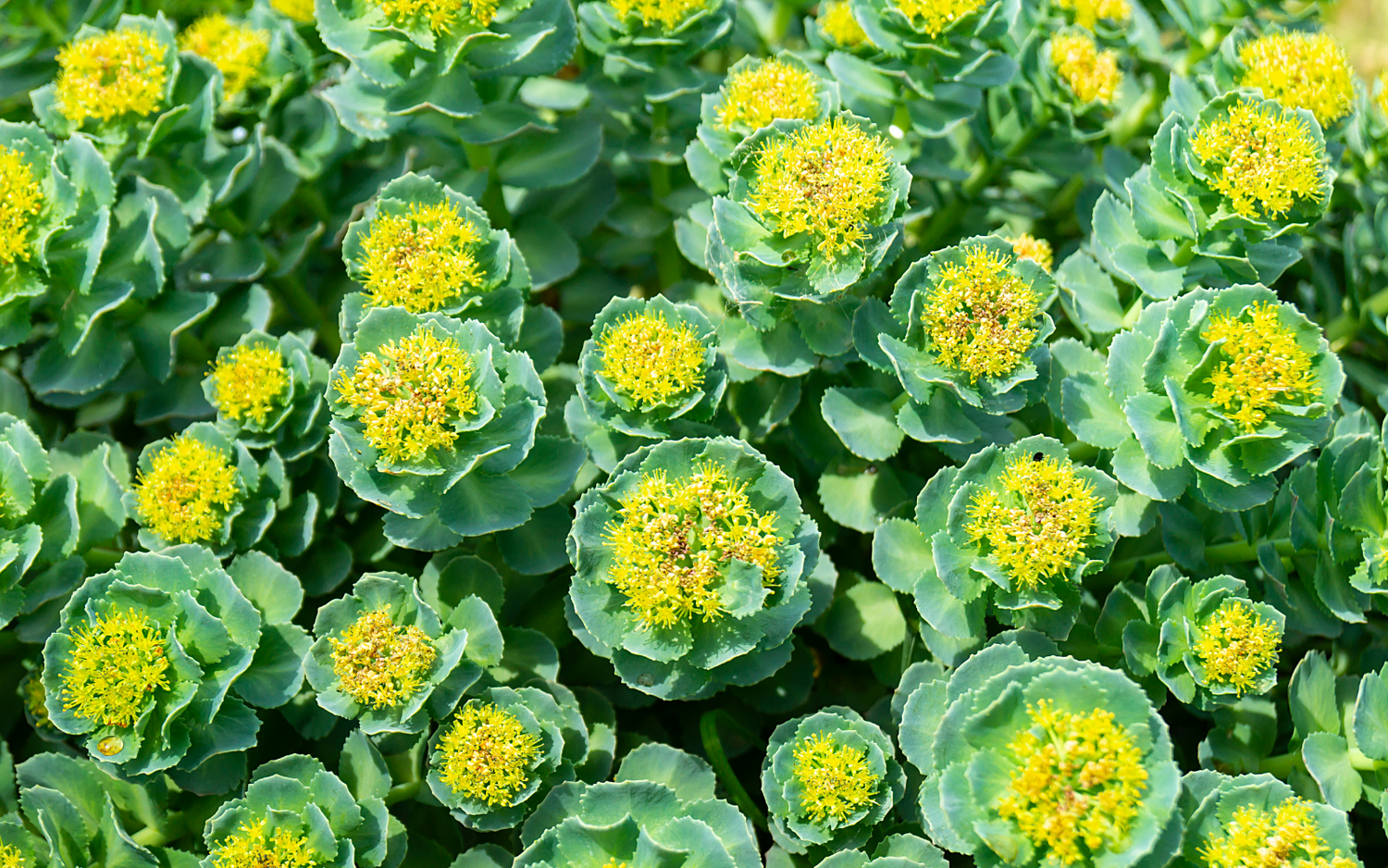Feeling stressed? Anxious? Mentally and physically fatigued? Perhaps you want to lose a little belly fat?
If you answered yes to one or all of these symptoms, you may want to consider taking rhodiola.
No, it's not the latest drug being advertised on TV commercials or magazine ads. Rather, it's a centuries-old remedy that just might help you feel better in more ways than one.

What Is Rhodiola?
Also known as Arctic root, golden root, roseroot, and king’s crown, Rhodiola rosea is a flowering plant that grows wild in cold, high-altitude regions across Europe and Asia, including Russia. Like many other herbs, rhodiola has been a go-to in traditional Chinese medicine and other folk medicine practices—its root has been used to treat everything from anxiety and stress to high-altitude sickness and fatigue. Today, modern science has discovered that such traditional applications were not unfounded. Rhodiola root contains more than 40 active compounds, including two that are particularly potent: rosavin and salidroside.(1) While both have beneficial properties, studies have shown that rosavin specifically has anti-anxiety and antidepressant effects. (2)
Rhodiola As An Adaptogen
More than just an ancient herb used in Chinese and Siberian cultures, rhodiola today is considered an adaptogen. What exactly is an adaptogen? It's a natural, non-toxic substance—usually a plant extract—that helps your body adapt to stress and maintain normal bodily functioning. In this regard, rhodiola is considered a plant adaptogen. While mainstream Western medicine doesn't officially acknowledge adaptogens since research has been limited, there are many practitioners in complementary and alternative medicine who assert that adaptogens effectively improve health without the side effects of pharmaceutical drugs. In fact, a 2010 scientific report found that adaptogens can impact the central nervous system: "Some of the most interesting developments are studies that clearly indicate that certain adaptogenic substances can activate the protective mechanisms of cells, which is linked to an increase in survival rate both in vitro and in vivo." (3) While there's no doubt that more clinical studies are needed, the findings thus far are promising. For more details on other adaptogens, be sure to check out our guide to adaptogenic mushrooms.
Health Benefits Of Rhodiola
Rhodiola is widely used today as a dietary supplement, most often in tablet or capsule form. Read on to discover some of the beneficial effects of rhodiola that are backed by science.
1. Rhodiola for Reduced Stress
Multiple studies have found that rhodiola helps balance the stress hormone cortisol and has an antidepressant effect. One clinical trial in 2012 showed that people taking a 200 mg dose of rhodiola twice daily for four weeks was "safe and effective in improving life-stress symptoms to a clinically relevant degree." (4) More recently, a 2018 review determined that rhodiola rosea extract "offers comprehensive treatment of stress symptoms and can prevent chronic stress and stress-related complications." (5)
2. Rhodiola for Anxiety and Depression
A 2015 randomized placebo-controlled clinical trial tested the safety and efficacy of rhodiola against sertraline, which is the drug used in antidepressants such as Zoloft. Although the study found that rhodiola wasn't as effective as sertraline at reducing symptoms of depression, it concluded that taking rhodiola had significantly fewer side effects and was better tolerated for people with mild to moderate depression. (6)
3. Rhodiola for Fatigue
Stress, anxiety, poor diet, and lack of sleep are just some of the contributing factors to both mental fatigue and physical fatigue. In a four-week study of rhodiola, 60 people with stress-related fatigue were given either a placebo or 576 mg of rhodiola every day. At the end of the trial, those who took the extract of rhodiola had reduced fatigue, decreased cortisol response to burnout, and increased mental performance. (7) Furthermore, a 2017 clinical trial conducted on 100 people with chronic fatigue symptoms were given a 400 mg dose of rhodiola root extract every day for eight weeks. The greatest change was observed after just one week of treatment, and the fatigue symptoms continued to decline with significant improvement in the final week. (8)
4. Rhodiola for Mental Performance
In 2018, the first-ever comprehensive preclinical systematic review of rhodiola for brain function in animal studies was conducted. The meta-analysis—which spanned 36 studies involving 836 animals—determined that rhodiola's beneficial effects are largely antioxidant and anti-inflammatory, improving blood flow to the heart and brain. Based on the multiple studies that were done up until May 2018, the authors concluded that rhodiola improves learning and memory function. (9)


